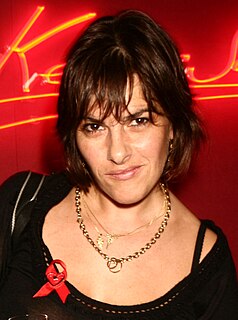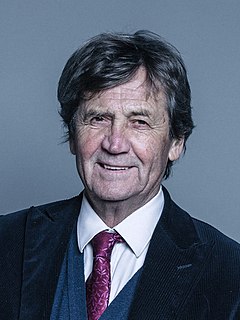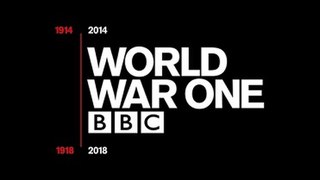
Tracey Emin, CBE, RA is an English artist known for her autobiographical and confessional artwork. Emin produces work in a variety of media including drawing, painting, sculpture, film, photography, neon text and sewn appliqué. Once the "enfant terrible" of the Young British Artists in the 1980s, Tracey Emin is now a Royal Academician.
Victor Lewis-Smith is a British film, television and radio producer, a television and restaurant critic, a satirist and newspaper columnist. He is executive producer of the ITV1 Annual National Food & Drink Awards. He is a music graduate of the University of York. He has been a contributor to Private Eye fortnightly magazine since June 1993.

Melvyn Bragg, Baron Bragg,, is an English broadcaster, author and parliamentarian. He is best known for his work with ITV as editor and presenter of The South Bank Show (1978–2010), and for the BBC Radio 4 documentary series In Our Time.

The South Bank Show is a British television arts magazine show. It was originally produced by London Weekend Television and broadcast on ITV between 1978 and 2010. A new version of the series began on Sky Arts from 27 May 2012. Conceived, written and presented by former BBC arts broadcaster Melvyn Bragg, the show aims to bring both high art and popular culture to a mass audience.
Dick Clement is an English writer known for his writing partnership with Ian La Frenais. They are most famous for television series including The Likely Lads, Whatever Happened to the Likely Lads?, Porridge, Lovejoy and Auf Wiedersehen, Pet.

Birds of a Feather is a British sitcom originally broadcast on BBC One from 16 October 1989 to 24 December 1998, then revived on ITV from 2 January 2014 to 24 December 2020. Originally starring Pauline Quirke, Linda Robson and Lesley Joseph, it was created by Laurence Marks and Maurice Gran, who have also written some of the episodes.

Mark Gerard Lawson is an English journalist, broadcaster and author. Specialising in culture and the arts, he is best known for presenting the flagship BBC Radio 4 arts programme Front Row between 1998 and 2014. He is also a Guardian columnist, and presents Mark Lawson Talks To... on BBC Four.

Who Do You Think You Are? is a British genealogy documentary series that has aired on the BBC since 2004. In each episode, a celebrity traces their family tree. It is made by the production company Wall to Wall. The programme has regularly attracted an audience of more than 6 million viewers. More than ten international adaptations of the programme have been produced.

Mark James Patrick Kermode is an English film critic and musician. He is the chief film critic for The Observer, contributes to the magazine Sight & Sound, presents the BBC Four documentary series Mark Kermode's Secrets of Cinema, co-presents the BBC Radio 5 Live show Kermode and Mayo's Film Review, and previously co-presented the BBC Two arts programme The Culture Show. Kermode is a member of the British Academy of Film and Television Arts. Kermode is a founding member of the skiffle band the Dodge Brothers, for which he plays double bass.

Graham McPherson, known by the stage name Suggs, is an English singer-songwriter, musician, radio personality and actor.
Francine Stock is a British radio and television presenter and novelist, of part-French origin.
The Late Show (1989–1995) is a British television arts magazine programme that was broadcast on BBC2 weeknights at 11.15pm—directly after Newsnight—often referred to as the "graveyard slot" in terms of television scheduling.

Waldemar Januszczak is an English art critic and television documentary producer and presenter. Formerly the art critic of The Guardian, he took the same role at The Sunday Times in 1992, and has twice won the Critic of the Year award.
Martin Richard Durkin is an English television producer and director, notably for Britain's Channel 4.
Midweek was a British weekly radio magazine series broadcast on BBC Radio 4. It was aired on Wednesday at 09.00 and repeated later the same day at 21.00. For most of its run it was presented by Libby Purves and each week several guests discussed various topics with her. Start the Week and Stop the Week, also broadcast on Radio 4, employed similar formats. The programme ended in March 2017 as part of a schedule change.
Feedback is a BBC Radio 4 series presented by Roger Bolton dealing with listener reaction to the style and content of BBC radio broadcasting.

The BBC World War I centenary season was the marking of the centenary of the First World War across the BBC. Programming started in 2014 and lasted until 2018, corresponding to 100 years after the war. The BBC season included 130 newly-commissioned radio and television programmes which lasted over 2500 hours, including more than 600 hours of new content. The programmes were broadcast on over twenty BBC television and radio stations.

Tracey Ullman's Show is a British sketch comedy television series starring Tracey Ullman. Tracey Ullman's Show premiered on BBC One on 11 January 2016. The programme marks her first project for the broadcaster in over thirty years, and her first original project for British television in twenty-two years.
A timeline of notable events relating to BBC Radio 4, a British national radio station which began broadcasting in September 1967.










